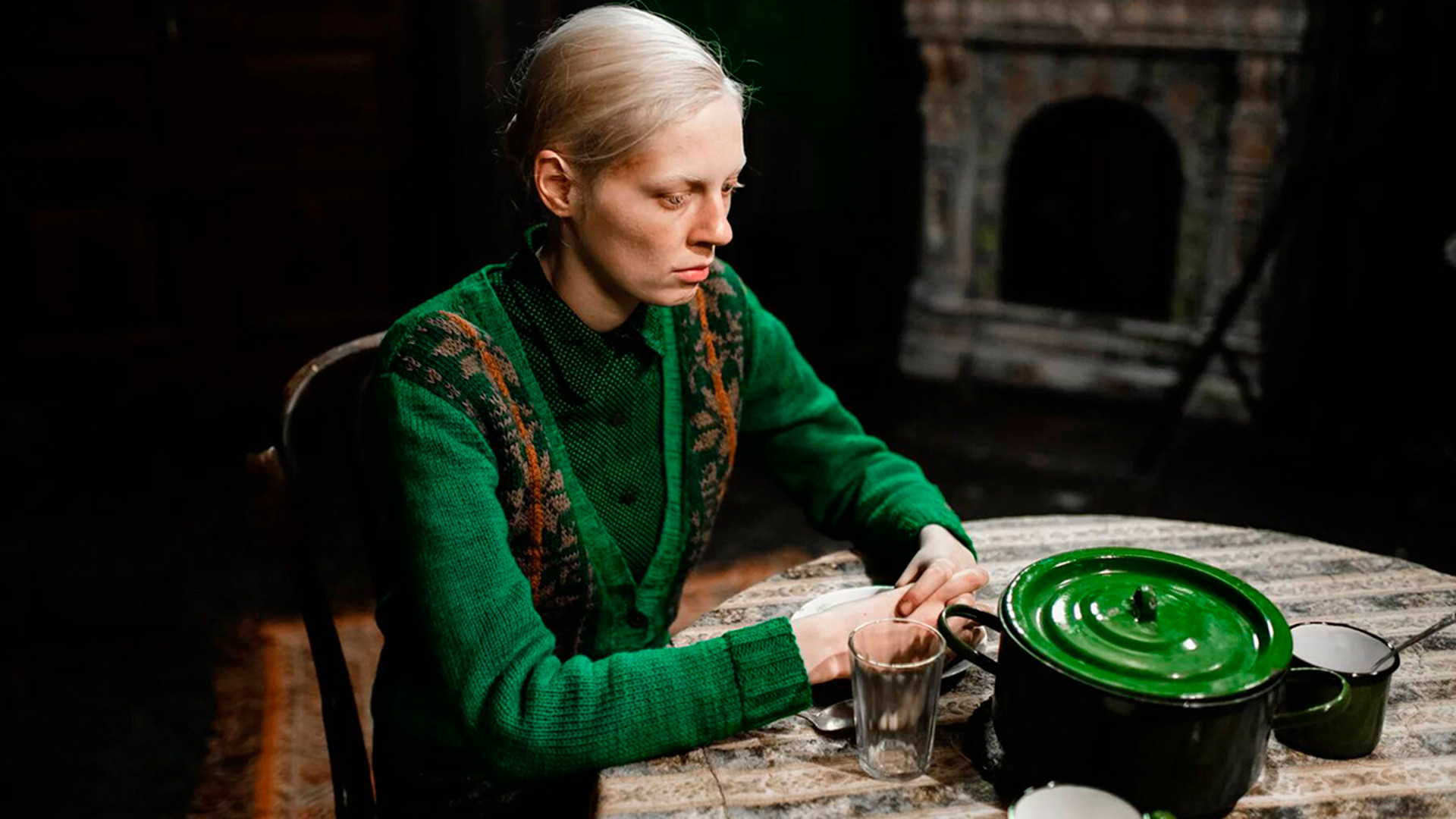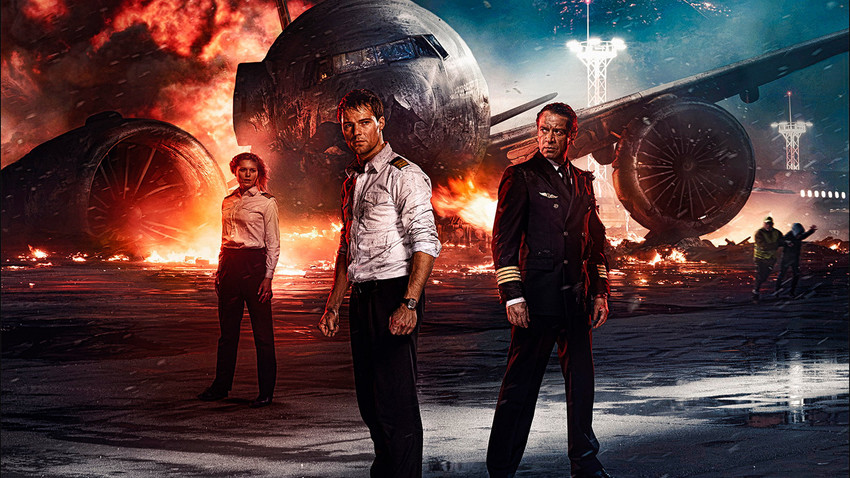
The last five years have convincingly proved that contemporary Russian cinema is alive and well. Not as an exception, not as a marginality, but as an important fact of our culture. This is especially noticeable in bright openings. Some help us to see from our side, some thunder to the whole world. We remember the luck that surprised everyone.
Table of Contents
“Closeness”, dir. Kantemir Balagov, 2017
The debut of Kantemir Balagov is a triumph of a very young student Alexander Sokurov, a Cannes sensation, the FIPRESCI prize in the “Unusual View” program. The story told in Tightness is both recognizable and very exotic. Exotic, because the focus is on the traditional Jewish family in Ingushetia. Everyday life, about which the inhabitants of Russia, and even more so in the West, know little, both here and there turned out to be strangely attractive. It is warm, although dark and cramped – until trouble invades the lives of the heroes. And this world is also recognizable, because it is the nineties that have sunk into the hearts of the thirties. Clothes, music, carpets on the walls, uncomfortable streets – aesthetics steeped in nostalgia. The dream of childhood Happy Season 3 quickly turns into a nightmare, which is symbolized by a snuff video where Chechen fighters torture and kill Russian soldiers. Only a director could show this, who is not afraid to take risks. The author’s courage soon paved the way for Balagov to Europe and Hollywood.
“Bull”, dir. Boris Akopov, 2019
Boris Akopov received the Kinotavr Grand Prix for his feature-length debut. Like Cramped, his film also explores the myth of the nineties. Young guys in olympics stand up for the honor of the court, then serious business begins. Cherry nines, game consoles, cassettes and brass knuckles – all these signs of the time in “Vagabond Season 2“ are mixed until thick. At the same time, Akopov, who gave several years of his life to ballet, focuses not only on details, but also on panoramic choreography of fights and pogroms. By all appearances, the spirit of the notorious dashing time will provoke this generation of directors for a long time to come.
“How Vitka Garlic Carried Leha Shtyr to the Home for Invalids”, dir. Alexander Hunt, 2017
It should be noted that the daring and severity has not gone anywhere in the outback and in our time. Alexander Hunt’s debut opens with a tavern brawl. Garlic then takes his father Pin to toss into another spooky outback. But the main thing, as you know, is not the goal, but the path. A journey into the depths and breadth of immense Russia will forever change something in the wild hero of the film. Hunt is not showing nude realism here, and certainly not “crap”. He has a swing at a tale, at a parable. She is also convinced by a juicy picture, a killer soundtrack and top actors, including Alexei Serebryakov and Andrei Smirnov.
“Daddy, Die”, dir. Kirill Sokolov, 2019
The blackest comedy of Kirill Sokolov was noticed by many. Somewhat superficially, the film is immediately considered an imitation of the early Tarantino. But “The Asterisk War Season 3” is not irony at all, not an exercise in style. Rather, I recall the eerie absurdist humor of the Oberiuts – the senseless bloodshed in the film will remind of Vvedensky’s “Christmas tree at the Ivanovs'”. The hero comes to kill the father of his girlfriend at her request, but the deadly fight in the spacious apartment drags on. This is also a parable, as in the case of Hunt’s film. It is easy to see that the murder of the “pope” metaphorically refers to the murder of an evil god. Blood, tin, and hammering on the kneecap merged in this film.
“Acid”, dir. Alexander Gorchilin, 2018

The first film, which Alexander Gorchilin directed as a director, no longer smells of the nineties. If they are, then like a ghost. This is unconditionally ours (better to say, a very recent time). Time is externally varnished, but internally scorched, like acid, by a deep crisis. Acid is everywhere, even in holy water. There were three friends: one was rich, the other was poor, and the third committed suicide. Poor is played by Alexander Kuznetsov, the leading actor in Daddy, Die, who has become one of the main faces of today’s cinema. Rich – Philip Avdeev. Together with Gorchilin, they are the chicks of Kirill Serebrennikov’s nest, who influenced this movie, perhaps more than others. Gorchilin’s film came out as a recognizable manifesto of a generation, that semi-bohemian part of it, familiar to the creator. Soft drugs, hard feelings, and more questions than answers. For example, such:
“Whaler”, dir. Philip Yuriev, 2020
Love runs along the wires and in the loud debut of Philip Yuriev, on which he worked for seven years. A Chukchi teen fell in love with a webcam girl named Hollysweet999. Like a Chekhov boy, he decided to immediately run to her through the Bering Strait to fabulous America. The world of erotic chats fancifully invades the almost chthonic space of Chukotka, where the gray sea is colored with crimson whale blood. This magically realistic film bears little resemblance to the others. However, Chukchi actors bring him closer to the phenomenon of Yakut cinema, and the main character subtly resembles Danila Bagrov from the main film of the nineties – another wanderer on a magical land.
“Russian Boy”, dir. Alexander Zolotukhin, 2019
In conclusion, let us recall the movie of another student of Sokurov. Alexander Zolotukhin was not looking for easy ways, making his debut with a film about the First World War in Overlord Anime Season 4. The battle and peaceful scenes were edited with a rehearsal of the orchestra, which is preparing to perform Rachmaninov. The director, on the other hand, conducts a huge orchestra of people, authentic objects, and formidable weapons. A terrible symphony, an intricately woven canvas, a poignant story of brotherhood and loneliness. Young soldier Alyoshka with a light heart went to war. In the first chemical attack, his eyes burned out. But for the war machine, Alyoshka will come in handy as a listener – a locator operator who picks up the approach of enemy aircraft. Hearing becomes sight. Will the hero hear the voice of God from the leaden skies, and where will the blind lead the blind?

